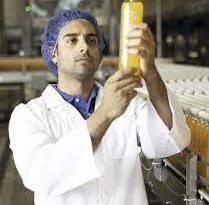Technical Lead – Food Analysis

Introduction: In the ever-evolving landscape of food technology and safety, the role of a Technical Lead in Food Analysis is paramount. This position blends expertise in scientific methodologies, regulatory compliance, and innovation to ensure the quality, safety, and authenticity of food products. In this article, we delve into the multifaceted responsibilities of a Technical Lead in Food Analysis and the pivotal role they play in the food industry.
Understanding the Role: A Technical Lead in Food Analysis serves as the linchpin between scientific rigor and practical application within the food industry. They are tasked with overseeing a spectrum of activities, including but not limited to, raw material analysis, product development, quality control, and regulatory compliance. Their primary objective is to safeguard consumer health and trust by ensuring that food products meet stringent safety and quality standards.
Analytical Expertise: At the core of the Technical Lead’s responsibilities lies a deep understanding of analytical techniques and methodologies. From chromatography and spectroscopy to microbiological assays, they possess the expertise to accurately analyze food samples and detect any deviations from desired specifications. Leveraging cutting-edge instrumentation and advanced software, they meticulously scrutinize food compositions to identify potential hazards or adulterants.
Quality Assurance: In an era where food safety breaches can have dire consequences, maintaining robust quality assurance protocols is imperative. Technical Leads in Food Analysis design and implement quality control measures to uphold the integrity of food products throughout the production process. They establish comprehensive testing protocols, conduct routine inspections, and collaborate closely with production teams to address any deviations promptly. By fostering a culture of quality consciousness, they mitigate risks and uphold brand reputation.
Regulatory Compliance: Navigating the labyrinth of food regulations and standards demands adeptness and diligence. Technical Leads in Food Analysis stay abreast of evolving regulatory frameworks, ensuring that their organizations adhere to local, national, and international requirements. Whether it’s FDA regulations in the United States or Codex Alimentarius standards globally, they interpret complex mandates and enact compliance strategies accordingly. By proactively addressing regulatory concerns, they safeguard consumer welfare and prevent costly legal ramifications.
Innovation and Product Development: Beyond ensuring compliance, Technical Leads in Food Analysis drive innovation in product development. They collaborate with R&D teams to explore novel ingredients, formulate healthier alternatives, and enhance sensory attributes. Through sensory analysis and consumer feedback, they fine-tune product formulations to cater to evolving market trends and consumer preferences. By marrying scientific expertise with market insights, they spearhead the creation of innovative, market-leading food products.
Risk Assessment and Management: Identifying and mitigating potential risks is a cornerstone of the Technical Lead’s role. Whether it’s assessing the microbiological safety of perishable foods or detecting allergens in packaged products, they conduct comprehensive risk assessments to preemptively address any vulnerabilities. By leveraging data-driven insights and predictive analytics, they anticipate potential hazards and implement preemptive measures to mitigate risks before they escalate.

Collaborative Leadership: Effective leadership is instrumental in orchestrating the intricate dance of food analysis and safety. Technical Leads in Food Analysis foster a collaborative environment where cross-functional teams work synergistically towards common objectives. They mentor and empower team members, nurturing a culture of continuous learning and professional development. By fostering open communication and constructive feedback, they foster innovation and drive organizational excellence.
Conclusion: In the complex and dynamic realm of food analysis, the role of a Technical Lead is indispensable. From ensuring analytical precision to spearheading product innovation, they serve as guardians of food safety and quality. By leveraging their expertise in scientific methodologies, regulatory compliance, and collaborative leadership, they navigate the gastronomic frontier with precision and purpose. In an era where consumer trust is paramount, Technical Leads in Food Analysis stand as stalwarts, upholding the integrity of the food supply chain and safeguarding public health.


